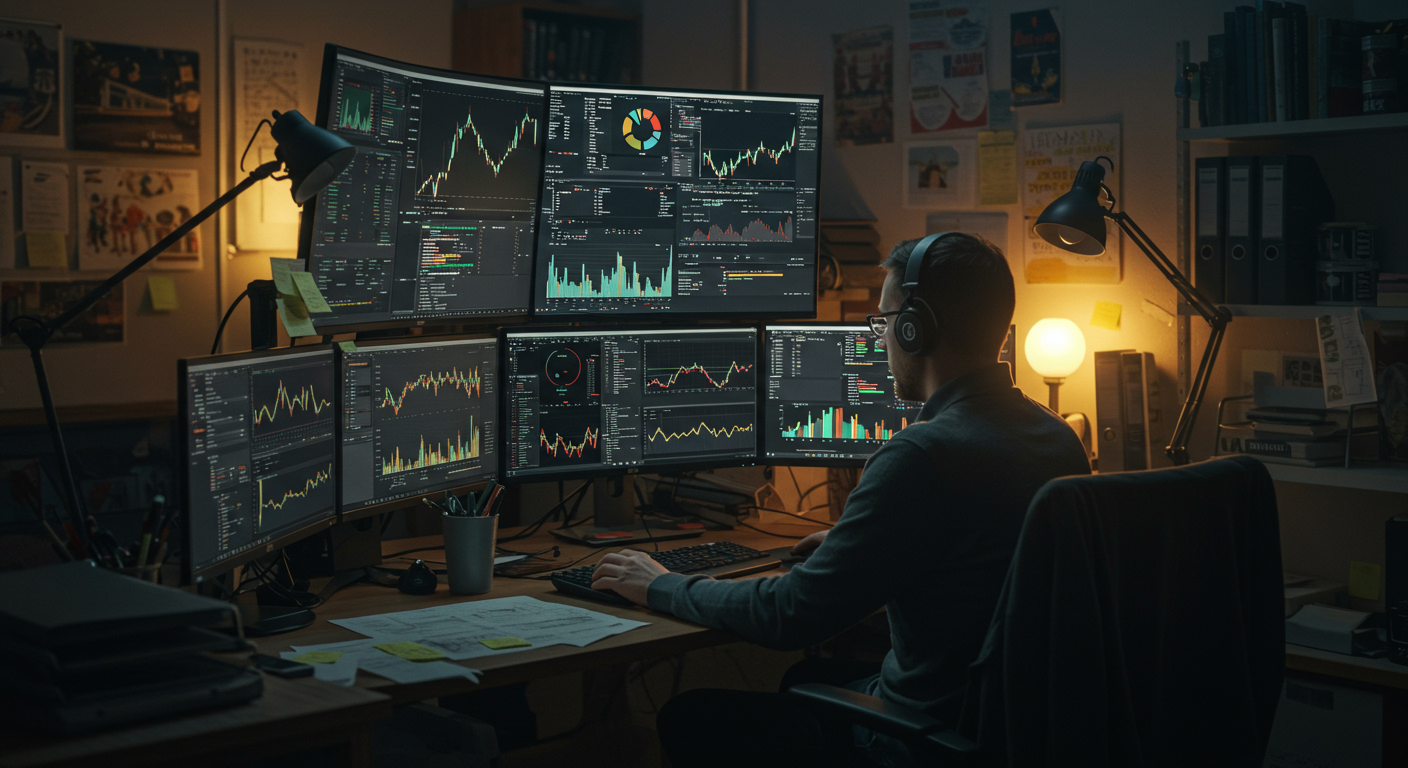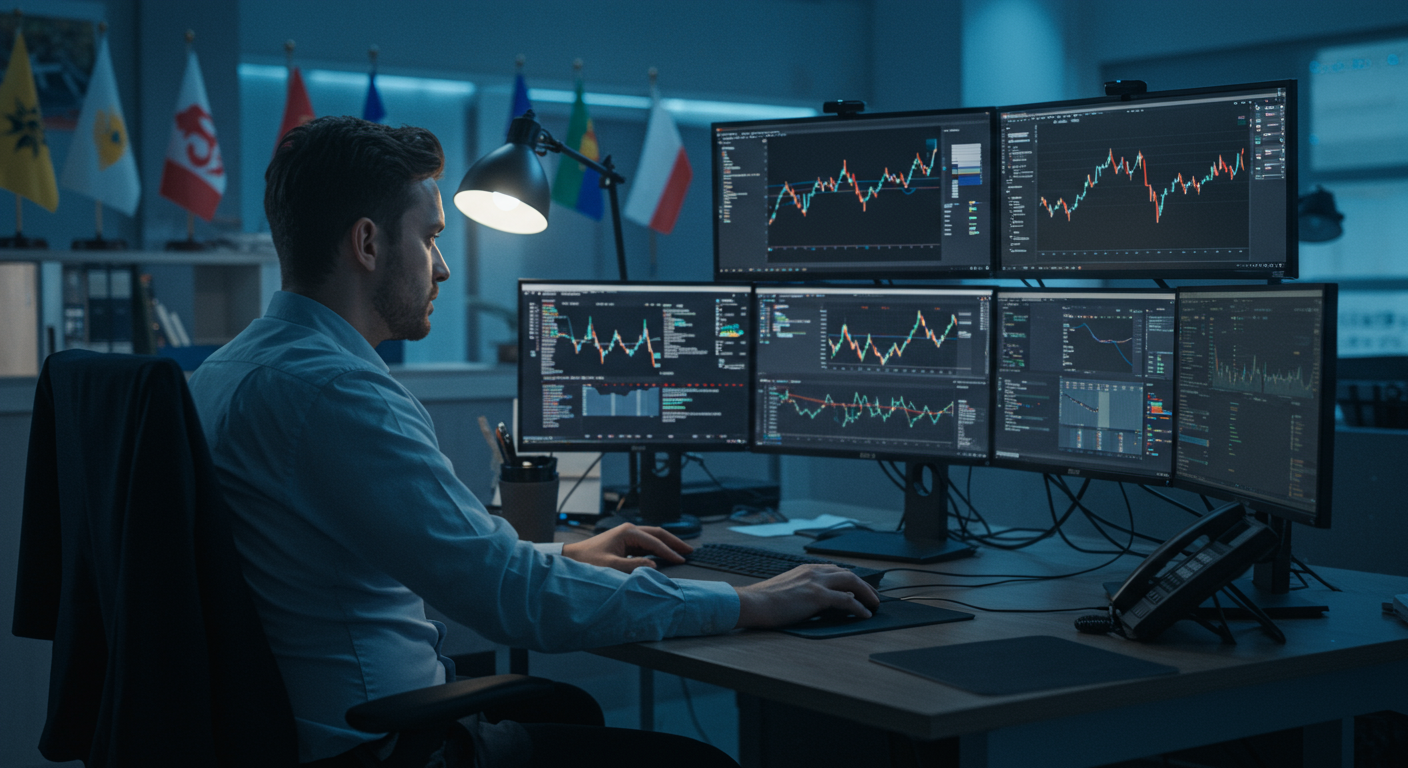That Reddit Post That Got Me Thinking
So, I was scrolling through r/Bitcoin the other day and saw a post that really stuck with me. The title was simple: "The day will come when people will be amazed you could get in <$1m." It's a bold statement, right? But it got me thinking about perspective and how we view value in the crypto space. We remember when Bitcoin hitting $20,000 seemed impossible, and now it feels like a bargain compared to more recent highs. Are we underestimating where this could all go?
The post itself expanded on this idea, suggesting that we need to start thinking in much larger intervals – $10 million, even $100 million per coin. The reasoning was that, eventually, crypto could become the primary store of value, replacing traditional systems like banks and real estate. It painted a picture of a future where Bitcoin's characteristics – permissionless, trustless, infinitely divisible, portable, and storable – make it the obvious choice for storing wealth. While that might sound like a far-off dream to some, it's worth considering the potential implications for us as traders, especially those of us navigating the international crypto landscape.
What really grabbed me was the sheer audacity of the prediction, but also the underlying logic. It's easy to get caught up in the day-to-day price fluctuations and lose sight of the bigger picture. This post was a reminder to zoom out and think about the fundamental value proposition of Bitcoin and other cryptocurrencies. It challenged me to consider what the world might look like if crypto truly becomes a mainstream store of value, and how that could impact the way we trade and invest.

Remembering When $20,000 Seemed Crazy High
Let's rewind a bit. Remember the 2017 bull run? Bitcoin soared to nearly $20,000, and everyone was talking about it. It felt like an astronomical number at the time. There were countless articles about whether it was a bubble, whether it was sustainable, and whether it was too late to get in. Now, looking back, $20,000 seems almost quaint. It's a stark reminder of how quickly things can change in the crypto world. This historical context is key to understanding the Reddit post's perspective. What seems like a crazy prediction today might be tomorrow's reality. Consider how many people sold their Bitcoin after that 2017 peak, convinced it couldn't go any higher. They missed out on substantial gains. The same could be true for those who are hesitant to invest now, fearing a market correction.
Think about the dot-com boom and bust. Many companies went bankrupt, but others, like Amazon, went on to become giants. The internet itself didn't disappear; it evolved and transformed the world. The same could happen with crypto. We might see projects fail and prices crash, but the underlying technology and the fundamental principles of decentralization and financial sovereignty could continue to drive growth and adoption.
What’s really interesting here is the psychological aspect. Our perception of value is heavily influenced by our past experiences and current circumstances. What seems expensive today might seem cheap tomorrow, and vice versa. This is why it's so important to have a long-term perspective and not get caught up in short-term market fluctuations. It's about understanding the potential of the technology and its ability to disrupt traditional systems.
What Does This Actually Mean For Your Crypto Strategy?
Okay, so let's bring this back down to earth. What does all this talk about million-dollar Bitcoins actually mean for you and your trading strategy? Well, first and foremost, it's a call to re-evaluate your long-term goals. Are you just looking for a quick profit, or are you trying to build a long-term store of value? If it's the latter, then you need to start thinking beyond the next few months or years. It means considering the possibility that Bitcoin could be worth significantly more in the future than it is today.
It also means being strategic about how you accumulate and hold your crypto. Dollar-cost averaging (DCA) is a great way to build your position over time, regardless of short-term price fluctuations. It involves investing a fixed amount of money at regular intervals, which helps to smooth out the volatility and reduce your risk. If you believe that Bitcoin is going to be worth millions of dollars in the future, then buying a little bit every week or month is a smart way to get there. And remember to properly secure your holdings using a hardware wallet or other secure storage solution. The last thing you want is to lose your crypto to hackers or theft.
Now, I'm not suggesting you bet the farm on Bitcoin or any other cryptocurrency. It's important to diversify your portfolio and manage your risk. But I am suggesting that you consider allocating a portion of your portfolio to crypto as a long-term investment. Think of it as a potential hedge against inflation and a bet on the future of finance. It may feel risky now, but looking back years from now, you might be amazed at how much value you've accumulated.
The Stuff Nobody Talks About: The Risks and Realities
Alright, let’s get real. I’m not trying to paint some rosy picture where Bitcoin magically goes to a million dollars overnight. There are definitely risks involved, and it’s important to be aware of them. The crypto market is notoriously volatile. Prices can fluctuate wildly, and you could lose a significant portion of your investment in a short period of time. Regulatory uncertainty is another major concern. Governments around the world are still grappling with how to regulate crypto, and new laws could potentially impact its value and usability. And of course, there’s always the risk of technological obsolescence. New and better cryptocurrencies could emerge, rendering Bitcoin obsolete. Or a critical flaw could be discovered in the Bitcoin code, undermining its security and value.
So, what can you do to mitigate these risks? First, do your own research. Don't just blindly follow the hype. Understand the technology, the market dynamics, and the regulatory landscape. Second, manage your risk. Don't invest more than you can afford to lose. Diversify your portfolio and use stop-loss orders to limit your potential losses. Third, stay informed. Keep up with the latest news and developments in the crypto space. Be aware of potential risks and opportunities, and adjust your strategy accordingly.
There's also the very real possibility that the future won't look like what the Reddit post imagined. Mass adoption of crypto isn't guaranteed. There are powerful vested interests that will fight to maintain the status quo. Traditional financial institutions, governments, and central banks aren't going to give up their power easily. They could try to stifle crypto through regulation, censorship, or even outright bans. So, it's important to be realistic and not assume that crypto is destined to take over the world.
Trading From Outside the US: A Whole Different Ballgame
Now, if you're trading crypto from outside the United States, there are a few additional things you need to consider. Tax implications vary widely from country to country. Some countries have very clear and comprehensive crypto tax laws, while others are still figuring things out. It's important to understand your local tax obligations and comply with them. Failure to do so could result in penalties, fines, or even legal action.
Regulatory environments also differ significantly around the world. Some countries are very crypto-friendly, while others are more restrictive. In some cases, you may not even be able to legally buy or sell certain cryptocurrencies. It's crucial to be aware of the laws and regulations in your jurisdiction and to trade accordingly. Exchange availability can also be a factor. Not all crypto exchanges are available in all countries. Some exchanges may be restricted due to regulatory issues or licensing requirements. You may need to use a VPN or other workaround to access certain exchanges, but be aware that this could potentially violate the exchange's terms of service.
Also, be mindful of currency exchange rates and fees. When you're trading crypto in a foreign currency, you'll need to convert your local currency into a cryptocurrency like Bitcoin or Ethereum. This conversion can involve fees and unfavorable exchange rates. It's important to shop around for the best rates and to factor these costs into your trading decisions. Finally, be aware of potential scams and fraud. The crypto space is rife with scams, and international traders are often particularly vulnerable. Be careful about who you trust and don't fall for get-rich-quick schemes.

Actually Doing This Stuff: Practical Steps to Take
Okay, so how do you actually put all of this into practice? Let's break it down into some actionable steps. First, set clear goals. What are you trying to achieve with your crypto investments? Are you saving for retirement, building a passive income stream, or just trying to make a quick profit? Your goals will determine your strategy. Next, do your research. Understand the cryptocurrencies you're investing in, the market dynamics, and the regulatory landscape. Don't just blindly follow the hype. Use resources like CoinMarketCap and CoinGecko to research different cryptocurrencies, and follow reputable news sources to stay informed about the market.
Set up a secure wallet. Choose a wallet that's appropriate for your needs and that offers robust security features. Hardware wallets are generally considered the most secure option for long-term storage, while software wallets are more convenient for everyday use. Explore different exchanges. Compare fees, features, and security measures before choosing an exchange to trade on. Platforms like Changelly are beginner-friendly, while KuCoin offers more advanced trading options.
Develop a trading strategy. Decide how you're going to buy and sell crypto. Are you going to use dollar-cost averaging, technical analysis, or fundamental analysis? Stick to your strategy and don't let emotions cloud your judgment. Start small. Don't invest more than you can afford to lose. Begin with a small amount of money and gradually increase your position as you become more comfortable with the market. And most importantly, stay patient. Crypto investing is a long-term game. Don't get discouraged by short-term price fluctuations. Stay focused on your goals and trust in your research.
My Take On All This Crypto Talk
So, here's my final take on all this. I think the Reddit post makes a valid point. We often underestimate the potential of transformative technologies. Bitcoin and other cryptocurrencies have the potential to disrupt traditional financial systems and become a major store of value. However, it's important to be realistic and to be aware of the risks involved. The crypto market is volatile, and regulatory uncertainty is a major concern. But if you're willing to do your research, manage your risk, and stay patient, then I think crypto can be a valuable addition to your portfolio.
Maybe I'm wrong. Maybe Bitcoin won't go to a million dollars. Maybe it will crash and burn. But I think the underlying technology is here to stay. Blockchain technology has the potential to revolutionize many different industries, from finance to supply chain management to healthcare. And even if Bitcoin fails, other cryptocurrencies could emerge that are even better and more successful.
Ultimately, it's up to each individual to decide whether or not to invest in crypto. But I encourage you to at least consider the possibility that the future could be very different from what we expect. The world is changing rapidly, and crypto could be a major part of that change. Don't dismiss it out of hand. Do your research, think critically, and make your own informed decisions.